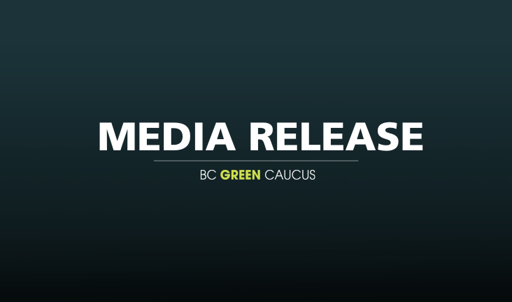Section 3 – Policy Initiatives & 2025 Deliverables
11. Democratic and Electoral Reform
The Parties will work together to create a special legislative all-party committee to evaluate and recommend policy and legislation measures to be pursued beginning in 2026 to increase democratic engagement & voter participation, address increasing political polarization, and improve the representativeness of government. The committee will review and consider preferred methods of proportional representation as part of its deliberations. The Government will work with the BCGC to establish the detailed terms of reference for this review, which are subject to the approval of both parties. The terms of reference will include the ability to receive expert and public input, provide for completion of the Special Committee’s work in Summer 2025, and public release of the Committee’s report within 45 days of completion. The committee will also review the administration of the 43rd provincial general election, including consideration of the Chief Electoral Officer’s report on the 43rd provincial general election, and make recommendations for future elections.



Anything less than full PR is less than an ideal representative democracy.
Besides, electoral systems are not supposed to determine the ideological makeup of government. The responsibility of the electoral system is to ensure effective representation in government, that’s it.
If you don’t like the ideological makeup of those countries you mentioned, blame the culture, not the electoral system.
I didn’t realize what community I was in, I thought this was a more general one. Seems rude to come in and argue the merits of PR in a community devoted to it, apologies, I’m happy to let it be.
If you read about what’s happening in those countries, you’ll realize it’s not about the culture, it’s that PR incentivizes really bad outcomes. Take Germany for example. Just like here, a small minority of people would vote for really hateful parties that are toxic and should be avoided. However, avoiding them has made the other parties form really broad and thus ineffective coalitions, which are unable to push forward significant legislation. The increasing inability to pass significant legislation has led to Germany’s stalling development, which then further fuels extremist parties.
Similarly, you’ll see in Israel where mainstream parties are held hostage by relatively small extremist parties leading to horrific outcomes that are generally not supported by the public.
I basically agree with the statement:
but I think you are missing the effective part. Consider, an absolute pure democracy where every bill, item etc was voted on by everyone. That would certainly be the ultimate in democracy, but it would be a terrible way to run a country and likely lead to some insane policy choices. Similarly, an autocracy can pass perfect and brilliant legislation but is completely un democratic. So, we can see that there is give and take between full representation and effective government. My entire point is that PR, while really groovy on paper, tends to produce really bad outcomes and thus sacrifices a lot of the efficiency of government (and of voting frankly) for some (arguably temporary) democratic gain. I know too much about the to be anything but stridently opposed to PR.
I mean, we live in a democratic society, so free speech is encouraged.
Edit: also if there were a hypothetical system superior to proportional representation, I’d be in favour of it after rigorous consideration. I’m not bound to any particular electoral system.
How is that a “bad outcome” when it’s literally what people voted for. Electoral systems are not supposed to decide the ideological makeup of government.
It’s not PR you are against, you are against a characteristic inherent of democracy itself.
Is this worse than the big tent parties we have now, that members can’t vote or think independent of their party leaders?
What does this have anything to do with our conversation? We aren’t discussing representative democracy versus direct democracy. We are discussing proportional representation vs non-proportional representation.
@AlolanVulpix @MyBrainHurts Sorry I know this isn’t directly abt PR for Canada. But isn’t Germany really an example of PR success? AFD is not in government. In the US, a similar movement (MAGA) pretty easily parlayed a small plurality within one party into a takeover of every government branch.
I’m not about to have a full discussion about PR causing success or not. I’m sure there are already articles written on it.
However, if we live in a democracy, we are deserving of and entitled to representation in government, and only proportional representation can get us there. A democracy necessarily requires everyone having a seat at the table, and in a representative democracy, vote percentage must equal seat percentage.
Great question! In the very short term, sort of. (Though from the start I’d point out that it is much harder to envision a party like the AFD gaining traction in an FPTP system)
PR causes 2 different styles of issues with the AFD. 1) It makes politics much less likely to produce significant or helpful change, so people don’t see meaningful political improvements in their lives and are more likely to turn to extremist parties like the AFD. and 2) Because the AFD has so many seats, the winning coalition has to be super broad, basically the same coalition of the Conservative and Progressives that was seen as ineffectual the last time around. Admittedly, this time they can exclude the Greens. The same reasons the previous government collapsed and led to such a significant rise in support for the AFD are still in effect.
@MyBrainHurts living in the us I guess it feels like fptp is producing government that is every bit as unresponsive to people’s problems. (Really a lot more unresponsive, for the problems important to me, like climate and housing.) And given the choice between a party system where it’s a little hard to build a coalition that lasts more than a couple years, and a two party system with one party actively dismantling democracy; I’d so so happily take the first one.
Yeah, a 2 party system is generally not very ideal. Here in Canada we’re lucky enough to have had multiple parties able to nudge one another into various directions.
I’m not sure how PR would stop those attempts. And if anything, it could make them significantly worse.
It’s more that those coalitions have serious trouble creating significant legislation, which still leads to issues like housing and climate change legislation being very unlikely. Except worse, it’s now very hard to assign blame OR to propose bold reforms. So you just muddle through with things getting worse. There’s a reason so many PR systems have started producing great outcomes for hard right parties. (The sort of anti democratic, racist parties that make the republican party look almost progressive.)
@MyBrainHurts Lol, now you’re making my brain hurt. I’m not sure if you realize how bad things are here. Ah well, we won’t convince each other. But wish you all the best up there.
I strongly recommend reading about modern German politics. Actual AfD manifesto “Islam does not belong to Germany. Its expansion and the ever-increasing number of Muslims in the country are viewed by the AfD as a danger to our state, our society, and our values.” As much as we hate them, imagine the Republicans writing something like that in their manifesto.
Yes, the Republican party is doing terrible things. But none of that would be stopped by a PR system. (Especially when the republicans won more than half the votes…)